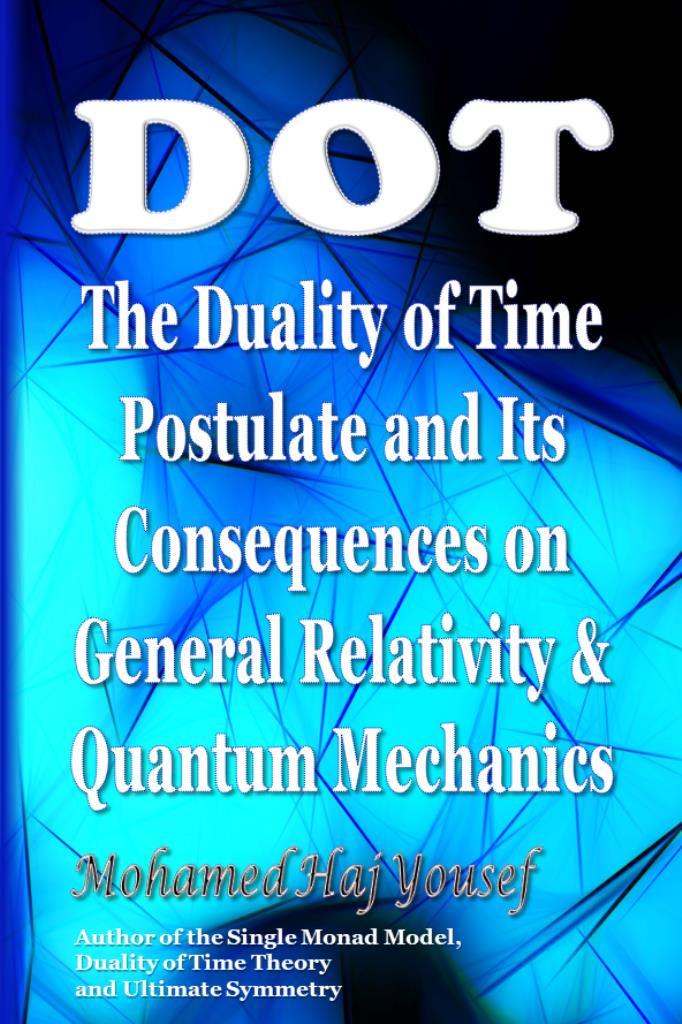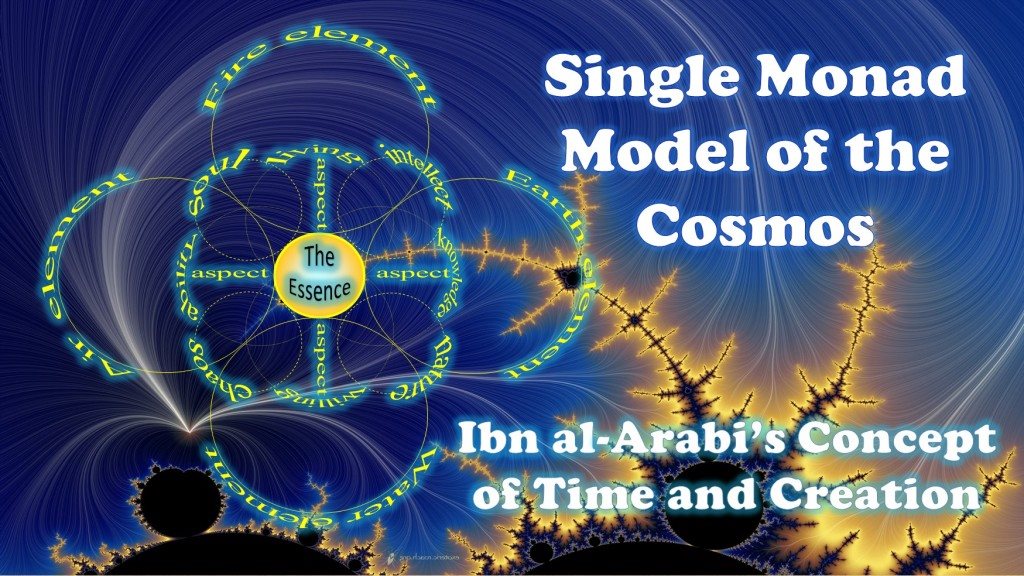Most of these introductory articles are exracted from Volume I of the Single Monad Model of the Cosmos: Ibn al-Arabi's View of Time and Creation... more on this can be found here.
The Moment
Moments:
In addition to the common Arabic words used for 'time'-zaman and zaman-al-waqt is also widely used, which means the state 'you are always described by, so you are always under the rule of the moment' [II.538.32]. We have already mentioned above the difference between zaman and zaman, and showed that Ibn al-Arabi uses them basically in the same context, although he tends to use zaman for fixed and short times, such as the Single Time. Al-waqt, however, sometimes has a different meaning and technical usage for Ibn al-Arabi. He notes that:
(this technical meaning of al-waqt) is in fact - by the convention of the Folk (the Sufis) - the state in which you are in the time being. So it is a thing that exists (now) between two non-existents (the past and the present; not as time but as things that have passed or are yet to come). And also it has been said that al-waqt is what comes upon them from the Real by (the Real's) managing (tasrif) them, not by what they choose for themselves.
[II.538.35]
Ibn al-Arabi elsewhere gives many equivalent meanings of al-waqt. For example he defines al-waqt in his short dictionary of Sufi terms (Issttilahat Al-Sufiyya: 8) by saying that: 'al-waqt is your state in the time being, without any relation to the past or to the future.' But at the end he says that:
the divine (ontological) basis of al-waqt is His, the most Exalted, describing Himself as being each day upon one task (50:29): so al-waqt is what He is in - in the root - but it appears in the offspring that is the cosmos. So the 'tasks' (shu’un) of the Real appear in the entities of the world (the contingent things). So al-waqt in fact is what you are in, and what you are in is your aptitude itself. So what appears in you of the tasks of the Real that He is in, is only what your aptitude demands: so the task is already designated, because the aptitude of the possible with its possibility led the task of the Real to bring it into existence. Do not you see that the non-existent does not accept the existence (or the task of the Real), because it has no aptitude for that. So the (outward, manifest) origin of al-waqt is from the cosmos, not from the Real, and it is a kind of supposition (taqdir) and supposition has no effect (hukm) on other than the creation (i.e. it has no rule on the Real).
[II.539.2]
In this way al-waqt is the current moment of time; it is our portion of the single Day; so the single Day with regard to the whole world is the global reality encompassing all of manifest existence - including all on earth - at any instant. But with regard to each entity in the world, it is a moment, since the time of each entity in the world is its waqt. This is why the Sufi was said to be 'the son of his moment (ibn waqtihi), as indicated by Gerhard Bِwering in his study of 'Ibn al-‘Arabi's Concept of Time'. In this paper, Bِwering also showed that: 'In Ibn al-‘Arabi's view there is an infinite cluster of moments, conceived as time atoms without duration, but they are mere instances of preparedness in which are actualized those possibilities that God has ordained to be affected in a human being.' (Bِwering 1992: 81)
However, the issue of whether the moment has a duration or not is extremely delicate. If we choose to say it has not, then how can the extent of the entire perceived day be composed of zero-length moments? We must keep in mind that the number of entities in the world (N), though very big, is finite. Therefore the single Day equals N multiplied by the duration of the moment. But if we choose to assert the actual duration of the 'moment', it would lead to questions already encountered in earlier philosophers' paradoxes about time, such as 'What exactly happens during the moment?' and 'Does the event that takes a moment pop up at once or gradually?' For if at once, then 'Why does it take a duration?' and if gradually, then 'What are the sub-events, and how many are they?'
Ibn al-Arabi did not give any direct insight about this subtle and highly important cosmological issue. However, in his cosmological treatise ‘Uqlat al-Mustawfiz, he spoke briefly about the Greatest Element (al-‘unsur al-a‘zam) whom Allah created at once, and we shall show in section VI.4 that the Single Monad, though it is an indivisible unit, is composed of or made by (or from different manifestations of) this Greatest Element. Therefore, the moment (that corresponds in fact to the creation of the Single Monad) should also be composed of 'sub-moments' (that correspond to the creation of the Greatest Element). We can now affirm, according to Ibn al-Arabi, that those sub-moments are utterly indivisible because he said that Allah creates the Greatest Element 'at once'. The questions of 'Do those sub-moments have non-zero durations?' and 'How many sub-moments are in the moment?' remain open, though a first speculation is that the process is similar to the normal day where the sun rises and sets to define the daytime and the night. There is some support for this in the comparison Ibn al-Arabi usually makes between the creation of the Perfect Human Being (that is the Single Monad) and the creation of the world, and more specifically the motion of the sun during the day. We shall talk about this comparison in section VI.7. Therefore, the Day of the Single Monad (that is the moment) may look smooth and composed of a continuous flow of time. But it is quite possible that the same sets of questions may be repeated and similar quantisation takes place at smaller scales.
When the Single Monad (that is the Universal Intellect) faces his Lord, this is the 'night' for the Universal Soul; and when the Intellect (‘aql, masculine in Arabic) faces the Universal Soul (nafs, a feminine noun) this is her daytime [III.202.22], so this is the single Day of the Single Monad that is the Universal Intellect, and therefore the moments that are the days of the sub-entities of the world (that are the sub-intellects) should be also in the same way. But we have not seen any reference in Ibn al-Arabi's writings with any details about the exact relation between the Single Monad and the Greatest Element, and hence about the moment and its possible constituents. On the contrary, Ibn al-Arabi affirms that this is a divine secret and that he was sworn not to disclose it (‘Uqlat Al-Mustawfiz: 38).
... Space Transcendence Read this short concise exploration of the Duality of Time Postulate: DoT: The Duality of Time Postulate and Its Consequences on General Relativity and Quantum Mechanics ...
... ss in which are actualized those possibilities that God has ordained to be affected in a human being.' (Bِwering 1992: 81) However, the issue of whether the moment has a duration or not is EXTREMELY DELICATE . If we choose to say it has not, then how can the extent of the entire perceived ...
... re exracted from Volume I of the Single Monad Model of the Cosmos: Ibn al-Arabi's View of Time and Creation... more on this can be found here . The Moment Moments: In addition to the common Arabic words used for 'time'-zaman and zaman-al-waqt is also widely used, which means the state 'you ...
... Uqlat al-Mustawfiz, he spoke briefly about the Greatest Element (al-‘unsur al-a‘zam) whom Allah created at once, and we shall show in section VI.4 that the Single Monad, though it is an INDIVISIBLE UNIT , is composed of or made by (or from different manifestations of) this Greatest Elem ...
... ]. We have already mentioned above the difference between zaman and zaman, and showed that Ibn al-Arabi uses them basically in the same context, although he tends to use zaman for fixed and SHORT TIME s, such as the Single Time. Al-waqt, however, sometimes has a different meaning and techni ...
... at is the moment) may look smooth and composed of a continuous flow of time. But it is quite possible that the same sets of questions may be repeated and similar quantisation takes place at SMALLER SCALE s. When the Single Monad (that is the Universal Intellect) faces his Lord, this is the ...
... I.539.2] In this way al-waqt is the current moment of time; it is our portion of the single Day; so the single Day with regard to the whole world is the global reality encompassing all of MANIFEST EXISTENCE - including all on earth - at any instant. But with regard to each entity in the ...
... those sub-moments have non-zero durations?' and 'How many sub-moments are in the moment?' remain open, though a first speculation is that the process is similar to the normal day where the SUN RISES and sets to define the daytime and the night. There is some support for this in the compar ...
... ally the motion of the sun during the day. We shall talk about this comparison in section VI.7. Therefore, the Day of the Single Monad (that is the moment) may look smooth and composed of a CONTINUOUS FLOW of time. But it is quite possible that the same sets of questions may be repeated an ...
... ned above the difference between zaman and zaman, and showed that Ibn al-Arabi uses them basically in the same context, although he tends to use zaman for fixed and short times, such as the Single Time. Al-waqt, however, sometimes has a different meaning and technical usage for Ibn al-Arab ...
... 'Why does it take a duration?' and if gradually, then 'What are the sub-events, and how many are they?' Ibn al-Arabi did not give any direct insight about this subtle and highly important COSMOLOGICAL ISSUE . However, in his cosmological treatise ‘Uqlat al-Mustawfiz, he spoke briefly ab ...
... abi's Concept of Time'. In this paper, Bِwering also showed that: 'In Ibn al-‘Arabi's view there is an infinite cluster of moments, conceived as time atoms without duration, but they are MERE INSTANCE s of preparedness in which are actualized those possibilities that God has ordained to ...














